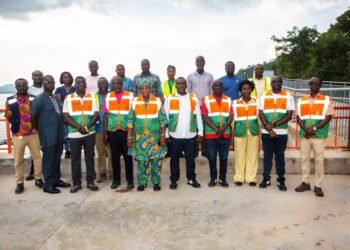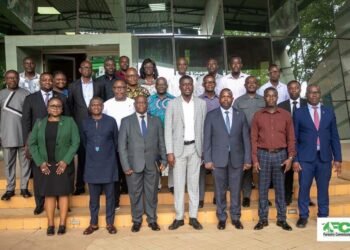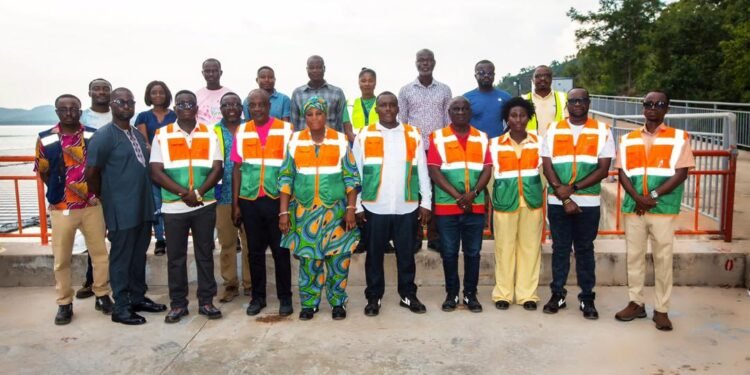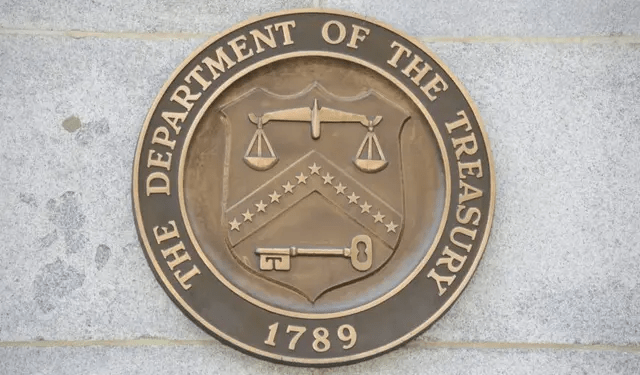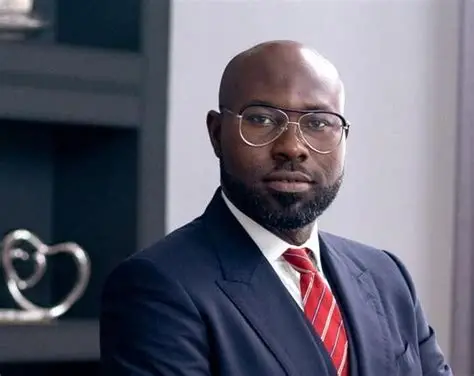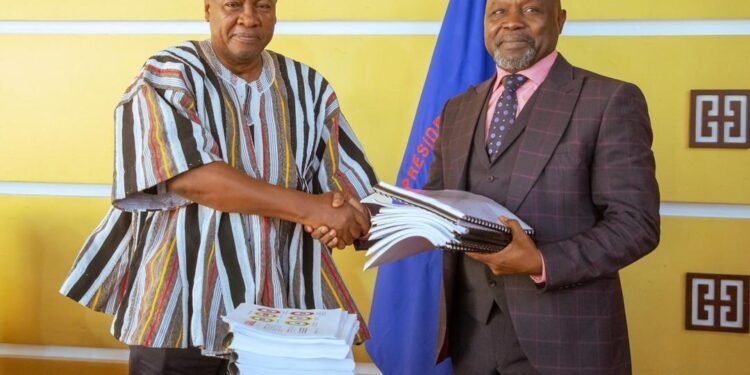At the 80th United Nations General Assembly (UNGA80), Ghana made an urgent plea for a global shift from climate promises to tangible action.
Representing President John Dramani Mahama at the Climate Vulnerable Forum (CVF) Leaders’ Meeting, Minister of State for Climate Change and Sustainability, Hon. Seidu Issifu, declared that climate accountability must “move from rhetoric to remedy” if the world is to avert worsening crises.
Speaking under the theme “A New Era of Climate Accountability: Adaptation Package, Debt Solutions, and Health Resilience for Vulnerable Nations,” Hon. Issifu outlined Ghana’s vision for global climate governance, a vision that places vulnerable nations not as passive recipients of aid but as leaders of a new accountability framework.
Ghana’s Climate Vision at UNGA80
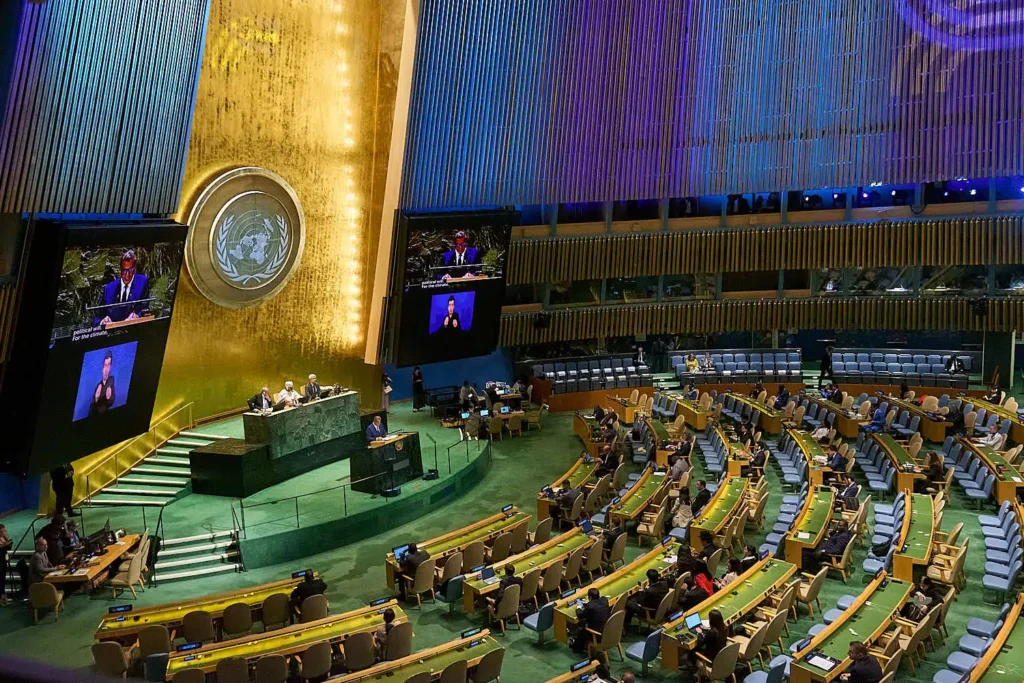
At the heart of Hon. Issifu’s message was a call for three urgent priorities. First, he stressed that adaptation finance must be scaled up, with investments channeled into community-led resilience and technology transfer.
Hon. Issifu said, “Adaptation cannot remain the afterthought of global climate policy,” insisting that financial commitments must match the lived realities of millions already facing devastating floods, droughts, and storms.
Hon. Issifu advanced a bold proposal for climate debt justice, calling for an institutionalized Climate Debt Forgiveness Mechanism.
This would allow vulnerable countries to redirect funds away from debt repayment and toward building climate-resilient economies.
Hon. Issifu declared, “Debt justice is non-negotiable,” warning that without it, the poorest nations would remain trapped in a cycle of vulnerability and financial dependency.
Finally, Issifu underscored the urgent need to integrate health resilience into climate action, pointing to the growing risks of climate-induced diseases, extreme heat, and strained healthcare systems.
“Health systems must be fortified as part of climate adaptation.
“Climate action is not just an environmental imperative, it is a public health necessity.”
Hon. Seidu Issifu, Minister of State for Climate Change and Sustainability
Moving Beyond New York
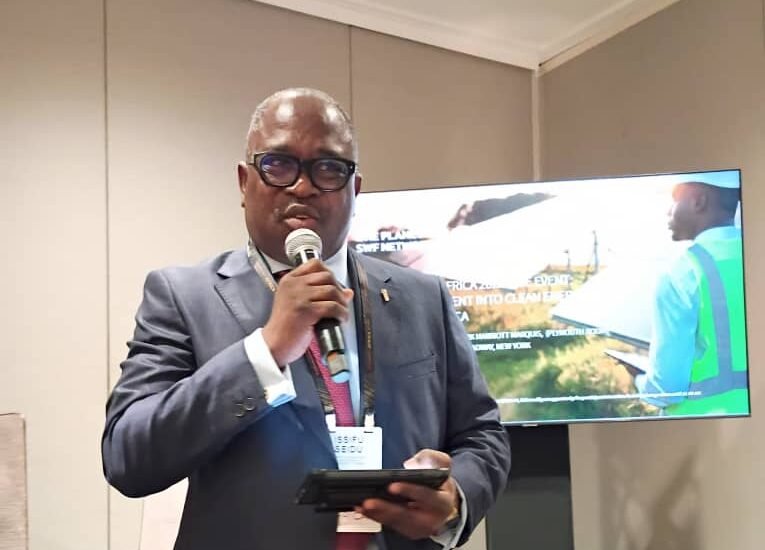
While UNGA80 provided the platform, Issifu made clear that the work must continue far beyond the halls of New York. His remarks set out a roadmap for how climate-vulnerable nations can carry this momentum forward.
He urged CVF members to institutionalize climate accountability by embedding sustainability units across all ministries and agencies, ensuring that adaptation is integrated into every level of governance.
He also called for regional alliances especially among African, Caribbean, and Pacific states to unite behind debt-for-climate swaps and concessional financing as a collective bargaining strategy with creditors and global financial institutions.
Highlighting the importance of South–South collaboration, Hon. Issifu pressed for shared research hubs and technology partnerships that enable vulnerable countries to drive their own adaptation strategies.
Finally, he reiterated the need to link climate and health agendas, reframing climate change as both an environmental challenge and a human security threat.
The CVF dialogue, chaired by Prime Minister Mia Amor Mottley of Barbados, drew voices from across the Global South.
Former Maldivian President Mohamed Nasheed, now Secretary-General of the CVF Secretariat, spoke of the existential threats to island states.
Leaders including Chad’s Prime Minister Allah-Maye Halina and Bangladesh’s energy adviser Fouzul Kabir Khan reinforced the urgency of Ghana’s message, stressing that adaptation and financial justice must be treated as global priorities.
Ambassador Elizabeth Thompson of Barbados added that small and vulnerable states had “waited too long for words to turn into delivery,” echoing Issifu’s demand for structural accountability.
Toward COP30 and Beyond

For Ghana, the intervention at UNGA80 was not just about shaping the global conversation but about building alliances that can carry the message into COP30 in Brazil next year and beyond.
By calling for climate accountability mechanisms rooted in justice, resilience, and health, Issifu set a tone that could shape negotiations heading into the next round of global climate talks.
As the dust settles on UNGA80, Ghana’s message continues to resonate. The country’s insistence that climate promises must be matched with delivery has provided a rallying point for coalitions such as the CVF and the V20 group of finance ministers.
“If acted upon, this moment can mark the turning point where climate vulnerability transforms into climate leadership anchored not in promises, but in action, justice, and resilience.”
Hon. Seidu Issifu, Minister of State for Climate Change and Sustainability
For Ghana, and for many of the world’s most climate-affected nations, the call is no longer for sympathy, but for structural change.
The test now lies in whether global institutions and powerful economies heed that call or whether, once again, the urgency voiced at the UN will fade into delay.
READ ALSO: Market Cheers as Ghana’s Treasury Auction Breaks Four-Week Drought with 15.8% Oversubscription




